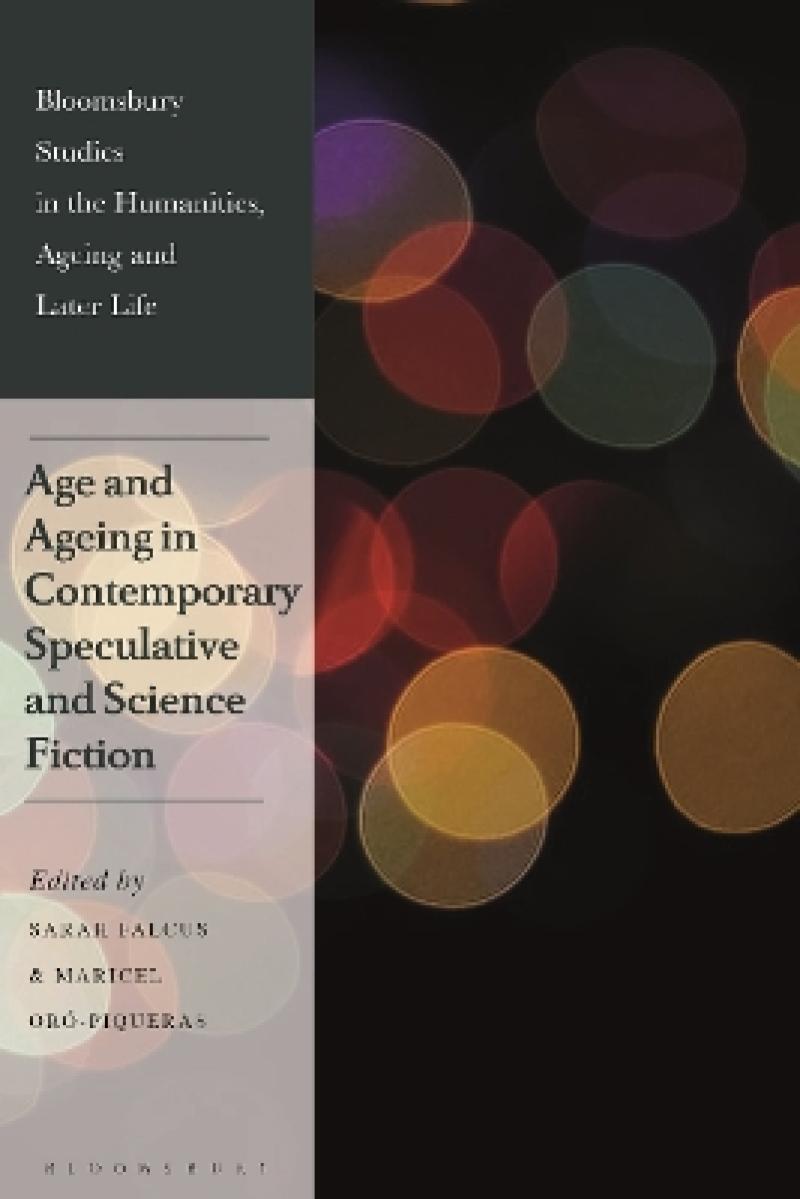Bringing together the critical perspectives of scholars from both SF studies and aging studies, <i>Age and Ageing in Contemporary Science and Speculative Fiction</i> tackles a gap in the study of representations of age, by exploring the possibilities that SF aesthetics afford to capture and reconceive the human experience of time. The variety of theoretical approaches that the contributors employ opens the book up to be used across a range of scholarship, which may further show the centrality of age and aging, rejuvenation, and immortality to SF… It lays a foundation for scholars who would like to further explore SF as a source of new and subversive visions of aging
- Mariana Batista da Cruz, Universidade Nova de Lisboa, Portugal, Utopian Studies
Introduction: Intersections between Age Studies and Science and Speculative Fiction
Maricel Oró-Piqueras and Sarah Falcus
Chapter 1
Remaking Ourselves: Age, Death and Techno-bodies in the Fiction of Transhumanist Immortality
Teresa Botelho
Chapter 2
Ageing and Youthing: Portrayals of Progression and Regression in Science Fiction Film and TV
Peter Goggin and Ulla Kriebernegg
Chapter 3
Ageing and Generation in Recent Narratives of Longevity
Sarah Falcus and Maricel Oró-Piqueras
Chapter 4
Biological Slaves: Discardable Bodies in Dystopia
Maria Aline Ferreira
Chapter 5
Prejudice Against Our Feared Future Self: Contemporary Perspectives on Ageing in European Dystopian Literature
Aleksandra Pogonska-Baranowska
Chapter 6
Ageing and Age-Based Extinction in Twentieth- and Early-Twenty-First-Century Speculative and Science Fiction: William F. Nolan and George Clayton Johnson’s Logan’s Run (1967) and Christopher Buckley’s Boomsday (2007)
Stella Achilleos
Chapter 7
‘Whatever comes after human progress’: Transhumanism, Antihumanism, and the
Absence of Queer Ecology inLidia Yuknavitch’s The Book of Joan
Sean Seeger
Chapter 8
A Spectral Future: Dementia and the Nonhuman in Marjorie Prime
Michael Hooper
Chapter 9
A Cure for Ageing: Digital Cloning as Utopian End-of-life Care in the ‘San Junipero’ Episode of Black Mirror
Eszter Ureczky
Chapter 10
Ageing, Anachronism and Perception in Dystopian Narrative: The Case of Margaret Atwood’s ‘Torching the Dusties’
Susan Watkins
Chapter 11
Playing with Possibilities: Ursula Le Guin and Speculations on the Human Condition: An Anocritical Approach
Roberta Maierhofer
Bloomsbury Studies in the Humanities, Ageing and Later Life responds to the growing need for scholarship focused on age, identity and meaning in late life in a time of unprecedented longevity. For the first time in human history, there are more people in the world aged 60 years and over than under age five. In response, empirical gerontological research on how and why we age has seen exponential growth. An unintended consequence of this growth, however, has been an increasing chasm between the need to study age through generalizable data - the "objective" - and the importance of understanding the human experience of growing old.
Bloomsbury Studies in the Humanities, Aging and Later Life bridges this gap. The series creates a more intellectually diversified gerontology through the perspective of the humanities as well as other interpretive, non- empirical approaches that draw from humanities scholarship. Publishing monographs and edited collections, the series represents the most cutting edge research in the areas of humanistic gerontology and aging.
Series editorial board:
Andrew Achenbaum, University of Houston, USA
Thomas Cole, University of Texas Health Science Center, USA
Chris Gilleard, University College London, UK
Ros Jennings, University of Glouchestershire, UK
Ulla Kriebernegg, University of Graz, Austria
Roberta Maierhofer, University of Graz, Austria
Wendy Martin, Brunel University, London, UK
Produktdetaljer
Biografisk notat
Sarah Falcus is a Reader in Contemporary Literature at the University of Huddersfield, UK. She is interested in the intersection of ageing studies and literary studies, and is the co-author (with Katsura Sako) of Contemporary Narratives of Dementia: Ethics, Ageing, Politics (Routledge, 2019). She has published in journals such as Feminist Review, Women: A Cultural Review and Ageing and Society. She co-edited a special issue of the European Journal of English Studies (2018), focussed on the intersection of English Studies and Ageing Studies. Her current work centres on two main areas: children’s literature and ageing; and ageing/the lifecourse in science and speculative fiction. She is the Primary Collaborator on the project 'Ageing and Illness in British and Japanese Children's Picturebooks 1950-2000: Historical and Cross-Cultural Perspectives', funded by the Japan Society for the Promotion of Science. She is the co-director of the Dementia and Cultural Narrative Network.
Maricel Oró-Piqueras is Associate Professor at the Department of English and Linguistics, Universitat de Lleida, Spain. She has been a member of research group Dedal-Lit since it started working on the representation of fictional images of ageing and old age in 2002. Her research interests include ageing and old age in contemporary fiction and representations of gender and ageing in film and TV series. She has co-edited two collections of essays entitled Serializing Age: Aging and Old Age in TV Series (2015, with Anita Wohlmann) and Narratives of Mentorship: Rediscovering (Age)ing (2019, with Núria Casado-Gual and Emma Domínguez-Rué) and a special issue of the European Journal of English Studies with Sarah Falcus (2018). Moreover, she has published her research in national and international journals such as English Studies, The Gerontologist and Journal of Aging Studies.
